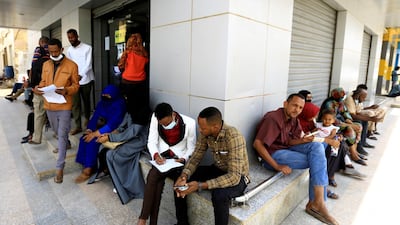The International Monetary Fund (IMF) said it reached a staff-level agreement with Sudan, a step that brings the North African country closer to debt relief.
A sustained strong performance under the staff-monitored programme is one of the requirements for Sudan to reach the "decision point" to qualify for debt relief under the Heavily Indebted Poor Countries (HIPC) initiative, the Washington-based lender said in a statement.
“Despite very challenging conditions which are exacerbated by the Covid-19 pandemic, the Sudanese authorities continue to make sustained progress on their ambitious reform agenda," Carol Baker, head of the IMF mission, said.
The agreement that follows completion of the fund's second and final review under the staff-monitored programme is subject to approval by IMF management, according to the statement.
With the review, Sudan has inched closer to qualifying for the World Bank and IMF's HIPC initiative to write off most of its foreign debt, which stands at $49.8 billion. Prompt action on measures required under the IMF staff-monitored programme, which began in September, may result in Sudan being granted debt relief by the end of June, the IMF said earlier this year.
Passing the second IMF review "paves the way for [Sudan] to reach HIPC decision point which will hopefully result in a substantial debt relief for [Sudan] as well as new credit lines, Gebreil Ibrahim, Sudan's Minister of Finance and Economic Planning, said on Twitter.
Sudan is facing multiple economic challenges following political upheaval that ended the rule of former president Omar Al-Bashir and the onset of the Covid-19 pandemic.
Its economy, which is estimated to have contracted 8.4 per cent last year, is expected to shrink another 2.3 per cent in 2021, according to the IMF.
To qualify for debt relief, Sudan established a six-month track record of satisfactory performance under the current IMF staff-monitored programme. It also removed large fuel subsidies and broadened the tax base in September.
In March, the IMF urged authorities to clear their arrears with multilateral creditors or agree on a strategy to do so.
The US removed Sudan from its list of state sponsors of terrorism in December after about three decades.
This brightened the country’s prospects of receiving much-needed external financing. In December, the US said it would give the World Bank a $1.15bn bridge loan to help clear the country’s arrears with the institution.


